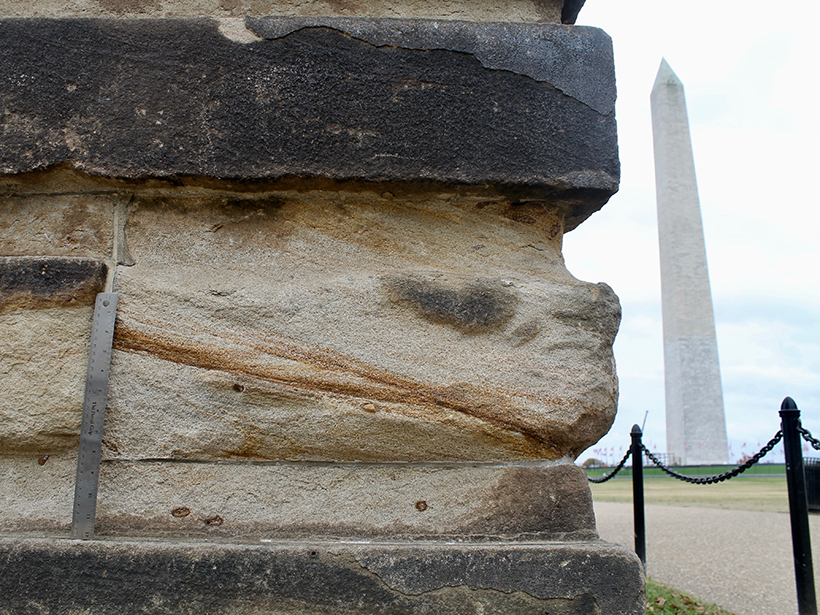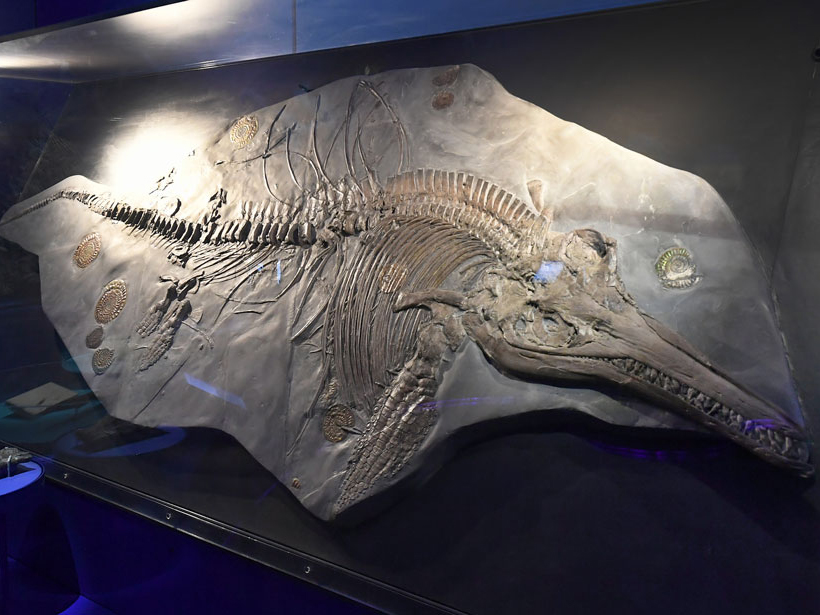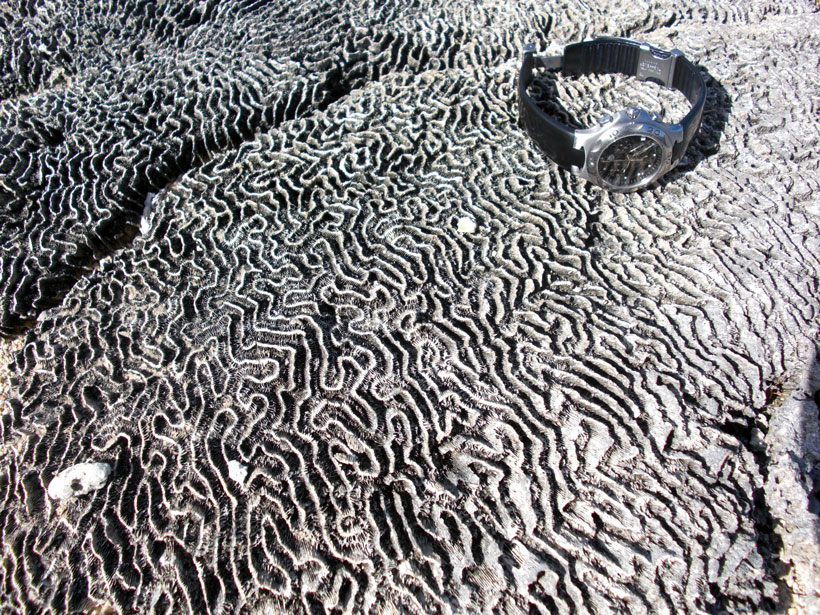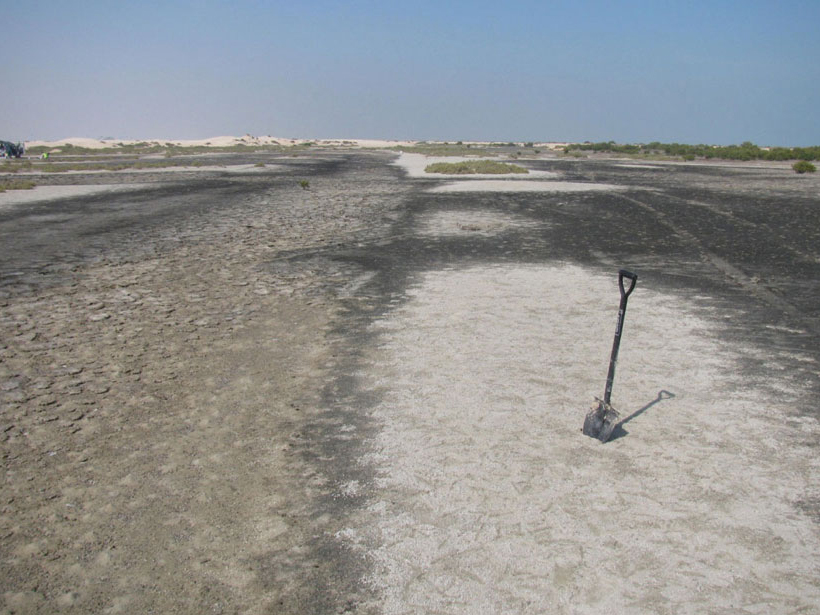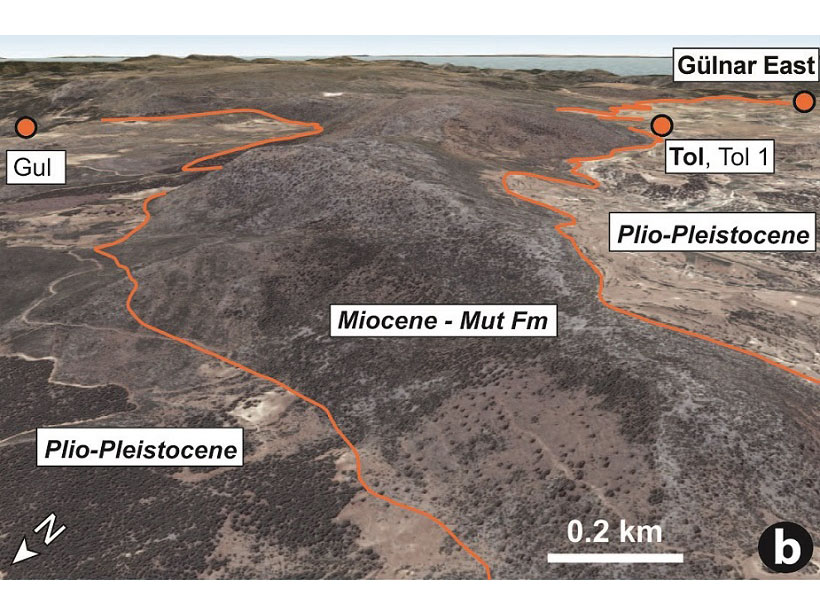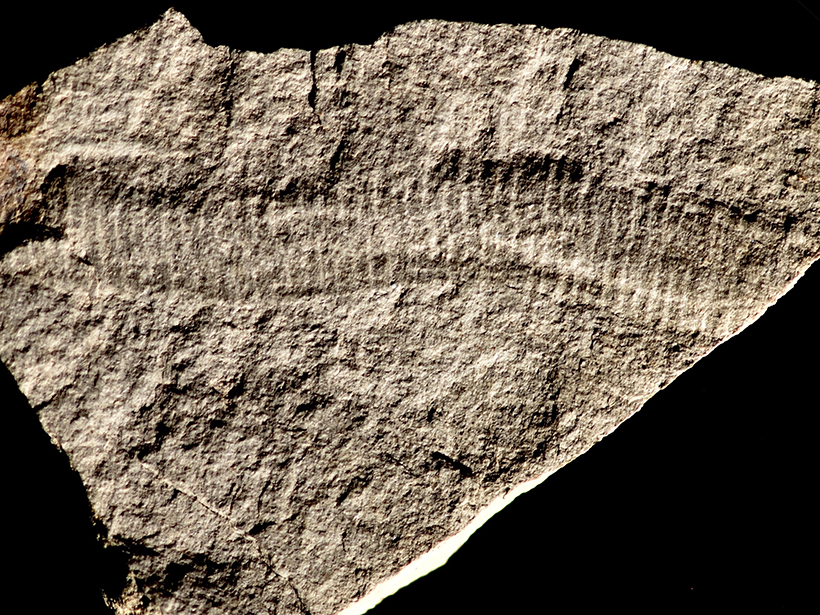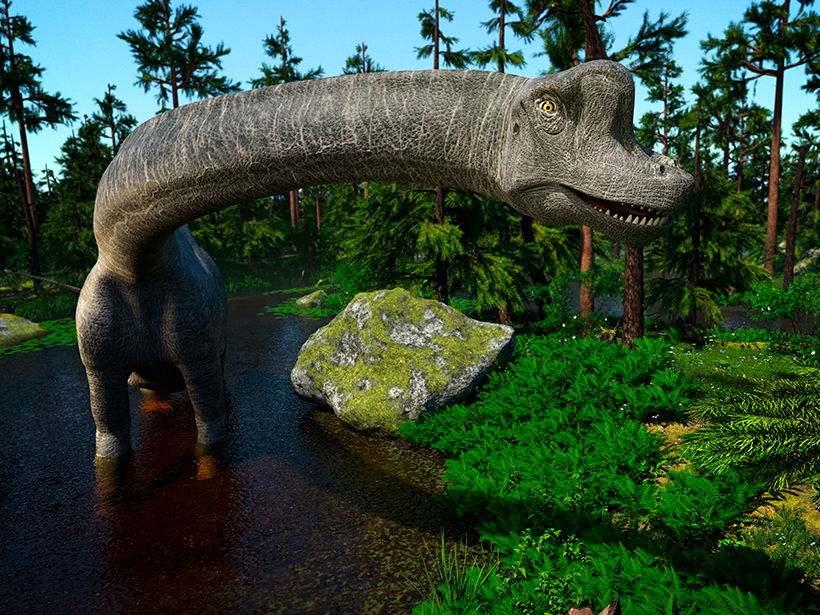The architecture of the nation’s capital reveals a secret geologic history—take a walking tour to spot the interesting fossils and minerals in the stones used to build the halls of power.
fossils & paleontology
How Did Life Recover After Earth’s Worst-Ever Mass Extinction?
Ocean animals at the top of the food chain recovered first after a cataclysm at the end of the Permian period. The extinction was triggered by events resembling the changes brewing in today’s oceans.
Fossilized Caribbean Corals Reveal Ancient Summer Rains
Isotope records and climate modeling suggest that the rainy Intertropical Convergence Zone expanded northward into the southern Caribbean during a warm interglacial period about 125,000 years ago.
Images Suggest a Viral Role in Some Rock Formation
Viruses might have helped transform dense bacterial colonies into a type of sedimentary rock that is frequently associated with underground oil reserves.
Rocks with Soft-Tissue Fossils Share a Mineral Fingerprint
Discovering new resting places of these rare and information-rich fossils will be critical to understanding the largest expansion of life in Earth’s history, according to researchers.
Tracking Deep-Earth Processes from Rapid Topographic Changes
Rapid elevation-rise in Turkey, tracked by marine sediments that now sit at 1.5 km in elevation, is linked to deep-Earth processes that can explain short-lived, extreme rates of topographic change.
Plotting the Pliocene Polar Front
Understanding changing conditions in the south polar oceans during the warm late Pliocene period may help predict the impact of contemporary warming.
Fossils Provide New Clues to Tibetan Plateau’s Evolution
The bones of ancient rhinos, elephants, and fish constrain when the Tibetan Plateau rose high enough to prevent migration, a move that forced animals to adapt to high-altitude conditions.
Hunting Rare Fossils of the Ediacaran
The search for fossil imprints and casts of squishy organisms takes time, perseverance, and sometimes a sprinkle of luck.
Signatures of Dinosaur Poop Found in Cretaceous Coal Seams
Coal analysis suggests that plant-eating dinosaurs, by walking kilometers between their picnic areas and their toilets, distributed important nutrients widely and boosted ecosystem health.

